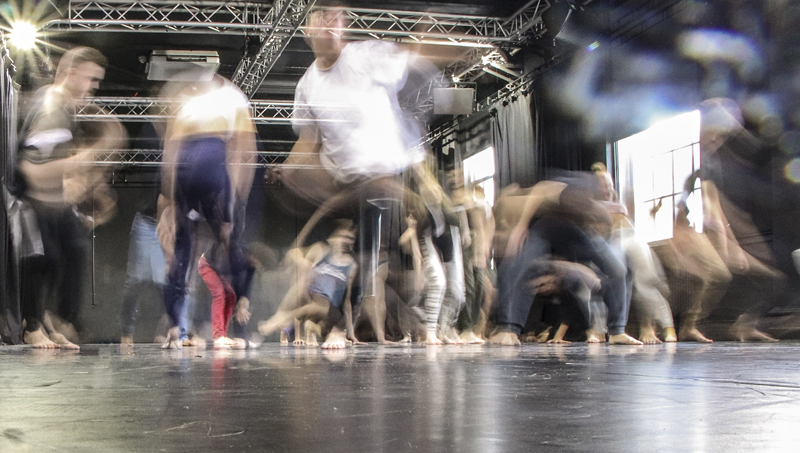Susan Elkin proffers some sage advice for those exploring the options for drama training and looking for a career in the theatre.
So what do you tell a talented, theatre-loving student who wants to be an actor? Traditionally parents and teachers simply dowsed her or him in cold water by observing that actors spend most of their time “resting” and that accountancy (or whatever) would be better. Well obviously, that won’t do. It’s much more complex than that. We owe it to these young people to take their ability and ambition seriously.
First there’s the increasingly blurred difference between university and drama school. A university degree in theatre studies might be useful if you’re aiming at writing, directing or management, but it will not train you to act. Many graduates from these courses then do an MA in acting to get the training they need. That’s a very costly option. But if it’s the chosen pathway then you might as well do the first degree in something completely different to widen your horizons. I’ve met post-grad actors in training with degrees in all sorts of things including law, economics and medicine.
You do not, however, need a degree to become a good actor. But you almost certainly (unless you’re James Cordon or Jodie Comer) do need to train – extensively.
Many of the formerly independent drama schools – East 15, Guildford School of Acting and Birmingham School of Acting, for example – have merged with universities. This is primarily to get access to university funding for things such as building programmes and student facilities. Inevitably there is a lessening of autonomy and pressure to reduce the costly 35 hours per week face to face teaching that drama students have long been led to expect. The students emerge with degrees, but casting directors won’t be interested in paper qualifications. Can you do a decent pirouette, hit that top C or present a character convincingly? That’s what will get you, or cost you, the job.
Some drama schools – RADA, Bristol Old Vic, and LIPA for instance – retain their independence but offer degree courses accredited by universities. This is a device to enable students to access student loans and, if eligible, grants, which don’t apply to non-degree courses. As well as demonstrating that the course is degree worthy (not necessarily, as we’ve seen, that it’s good actor training) they have to pay a substantial fee to the accrediting university, which must impinge on the students indirectly because that money is then not available to enhance training.
Schools and colleges like Musical Theatre Academy (TheMTA) which remain fully independent can offer students no funding support apart from any bursaries they can offer themselves or persuade sponsors to fund. Even career development loans, which used to be an answer for some, have now been stopped. However good the training is, it’s going to be beyond the reach of many students. It also puts the schools under duress because they cannot recruit all the talented (but not well off) students they would wish to.
And even schools which bought into the university accreditation link are vulnerable. ALRA, which opened in 1979 and had by 2010 established ALRA North in Wigan alongside ALRA South in Wandsworth, hit the financial buffers in April this year and closed on 04 April, controversially without offering its students any notice or support. None of us would want our former students to be in that position.
So, to return to my original question, what advice should we offer them apart from the obvious “tread very carefully”?
Personally, I’d suggest that they first consider colleges like LAMDA, Guildhall School of Music and Drama, Rose Bruford and Trinity Laban, all of which have degree awarding powers. That means that they retain independence and are licensed to control their own degrees and courses while the students have full entitlement to funding. You are more likely, I think, to get the detailed training you need in a college which is not linked to a university than in one which has to fight with an outside body for its hours of tuition or defend its emphasis on practical work.
There is another point too. Sometimes young people want to act because they love theatre and performance is all they see. What they really mean, even if they don’t realise it, is that they want to work in theatre. And theatre is like an iceberg: seven eighths is invisible. We should, in my view, be talking to young people about jobs in set construction, lighting design, casting, theatre management, producing, workshop leading and much, much more. Why not search out these people and bring them into school to tell students what they do?
And let’s not forget that the performing arts are a wonderful industry to work in. How can, in whatever capacity, entertaining, challenging and supporting people not be a satisfying career even if freelance life is a bit precarious? So that’s another piece of advice to give them. Everyone who works in theatre needs to develop another skill alongside the theatrical ones, so that bills can be paid at quiet times. It doesn’t matter what it is. I recently had a chair upholstered by an actor. I know another who moonlights as a swimming coach. And yet another who makes celebration cakes to order.
In short, encourage them every inch of the way – but caveat emptor and temper it with common sense.
So You Want to Work in Theatre by Susan Elkin (Nick Hern Books)
@SusanElkinJourn



